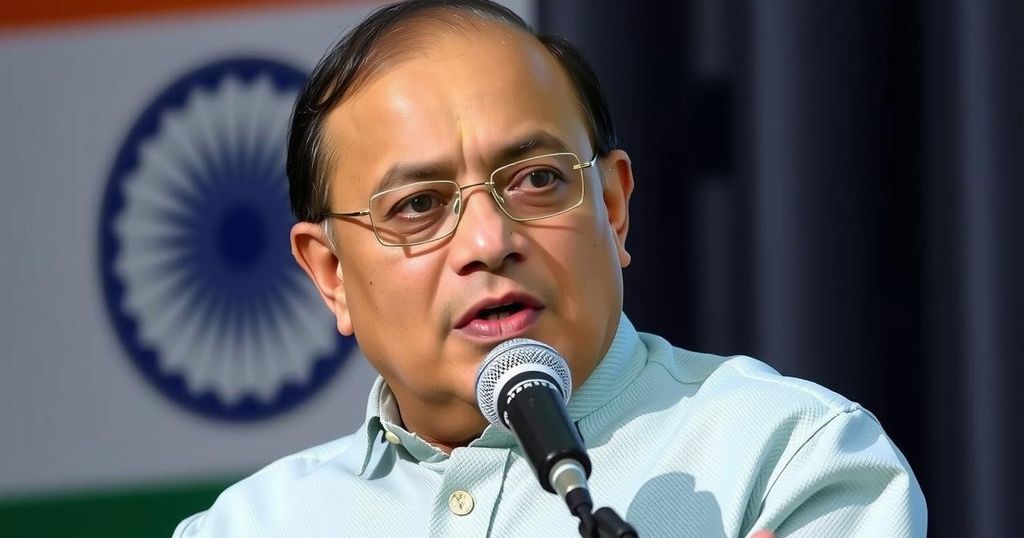India’s Crypto Legislation Delayed Until Mid-2025, Says Senior Lawmaker
India is set to delay any specific legislation for cryptocurrencies and Web3 until 2025, as highlighted by lawmaker Jayant Sinha. He emphasizes the importance of balancing innovation and safety in light of evolving global standards and upcoming elections in major nations. Concerns around the volatility in the crypto market further complicate legislative efforts.
India is unlikely to see any specific legislation concerning cryptocurrencies or Web3 for at least another 18 months, according to Jayant Sinha, a prominent Indian lawmaker overseeing the country’s financial regulations. During an interview at India Blockchain Week in Bengaluru, Sinha emphasized the importance of balancing innovation and safety in the crypto space, reflecting on the evolving global standards and the electoral context in key countries such as India, the US, and the UK in 2024.
Sinha outlined three significant reasons for the delay in drafting a crypto bill: the need to assess evolving use cases within India’s unique economic environment, the unpredictability surrounding the upcoming elections, and the aftermath of significant industry setbacks like FTX’s collapse. He stated that further clarity on viable use cases and global standards is essential before any legislative measures can be instituted, noting, “I want to first see the use cases that will really be powerful for India.”
While India has yet to legislate on crypto, it has introduced anti-money laundering rules and a tax structure for cryptocurrencies, potentially paving the way for an informal regulatory framework as officials aim to align with global recommendations by the end of 2025. Sinha also highlighted India’s capital controls as a major factor that complicates the adoption of crypto assets compared to countries with free-floating currencies, urging caution in navigating the crypto landscape. He concluded by inviting Web3 entrepreneurs and developers to propose frameworks that could guide India’s regulatory approach in the future.
As the world spins into an era increasingly defined by blockchain technology and digital currencies, India finds itself at a crossroads, balancing innovation with regulatory caution. The Indian government, which has kept a crypto bill stagnant since 2021, finds itself influenced not only by homegrown developments but also by global standards, especially in light of impending elections. Lawmakers like Jayant Sinha are keenly aware of the challenges posed by international market fluctuations and the need for safety in the crypto realm, where volatility can impact national finance.
In summary, India’s path toward a comprehensive crypto and Web3 legislative framework remains obscured by uncertainties tied to global standards, electoral politics, and the need for careful assessment of local use cases. Jayant Sinha’s insights highlight the nation’s cautious approach as it seeks to balance fostering innovation against the backdrop of significant economic challenges. The prospect of a legal framework in this dynamic space appears distant, projected at least until mid-2025, while interim measures are likely to take precedence.
Original Source: www.coindesk.com




Post Comment